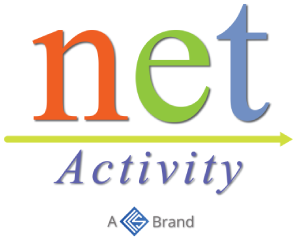Security Issues: Public vs. Private vs. Hybrid Cloud Computing. How to Overcome?
Cloud storage has become immensely popular among the businesses (small, mid-sized or big) and has been positively being adopted across the globe. Depending upon the features and approved budget, organizations choose a cloud computing service that serves their purpose in the best possible manner.
Here is a quick list of characteristics summarized by cloud computing storage providers to help you decide the best one for you:
Characteristic | Public cloud storage | Private cloud storage | Hybrid cloud storage |
| Security | Good. Depends on the security measures of the service provider | Most secure as all storage is on-premises | Very secure. Integration options add an additional layer of security |
| Performance | Low to medium | Very good | Good, as active content is cached on-premises |
| Scalability | Very high | Limited | Very high |
| Reliability | Medium. Depends on Internet connectivity and service provider availability | High, as all equipment is on-premises | Medium to high, as cached content is kept on-premises. Also depends on connectivity and service provider availability |
Although the cloud computing solutions have witnessed a remarkable growth in the past few decades, many organizations are skeptical about accepting it due to the security issues associated with it. Sharing your valuable private data with some other company’s storage systems is undoubtedly daunting and leads to an open invitation to data breaches.
What are the security challenges you must be aware of before moving to the cloud?
- Loss of Governance: Ideally, you have very less control over your data when you delegate the authority to a private cloud computing solutions provider. So, it is better to be knowledgeable about the level of security training their personnel receive, their security infrastructure and policies, their patch management, logging policies and vulnerability assessment and intrusion detection and prevention systems (IDS/IPS).
- Loss of Data: Despite of the security measures taken by the cloud service providers, there have been cases in the past to make you feel insecure about the attack of hackers and data loss. Examples include a group of hackers that could obtain e-mail addresses and SIM card numbers for over 100,000 iPad users from the AT&T website.
- Threat from a shared infrastructure: The cloud offers a multitenant storage system which makes it difficult to locate who you are sharing the infrastructure with. They may possibly be hackers! & you might be risking your critical data to them.Vulnerability in your neighbor’s web application could mean the loss of your sensitive data, if all customers share the same backend database.
How to overcome security challenges of the cloud storage?
Regardless of the above risks, a critical and thoughtful proactive approach can lead you to a smooth functioning of the cloud computing solutions. Here are three steps to help you overcome cloud security challenges:
- Establish criteria to evaluate public cloud vendors:
- Perform pre-employment checks
- Change control and remote access policies, backup procedures, patch management, log retention and review policies, isolation technologies &application security
- Business Continuity Management: recovery and failover procedures, customer communication processes
- Define strict escalation procedures, security monitoring infrastructure, documentation, metrics
- Develop your internal infrastructure into a private cloud: Building a private cloud is similar to building a virtual network. This would save you time as well as monetary resources. But be careful to maintain security & make sure you see the blind spots.
- Sequence your migration to the cloud: Your management might be encouraging you to establish a cloud storage network to increase agility and reduce costs. Starting with low risk applications, you can demonstrate to management the inherent risks of cloud computing while not sacrificing your critical data, reputation, and potentially incurring legal or financial risk.
Net Activity, Inc. a certified Microsoft Cloud Provider, we can provide you Cloud, On premise or Hybrid solutions. Contact us on (216) 503-5150 ext 206 or write to us at https://www.netactivity.us/contact-us. For more about our Cloud Offerings please refer to https://www.netactivity.us/services/cloud-computing-services.




